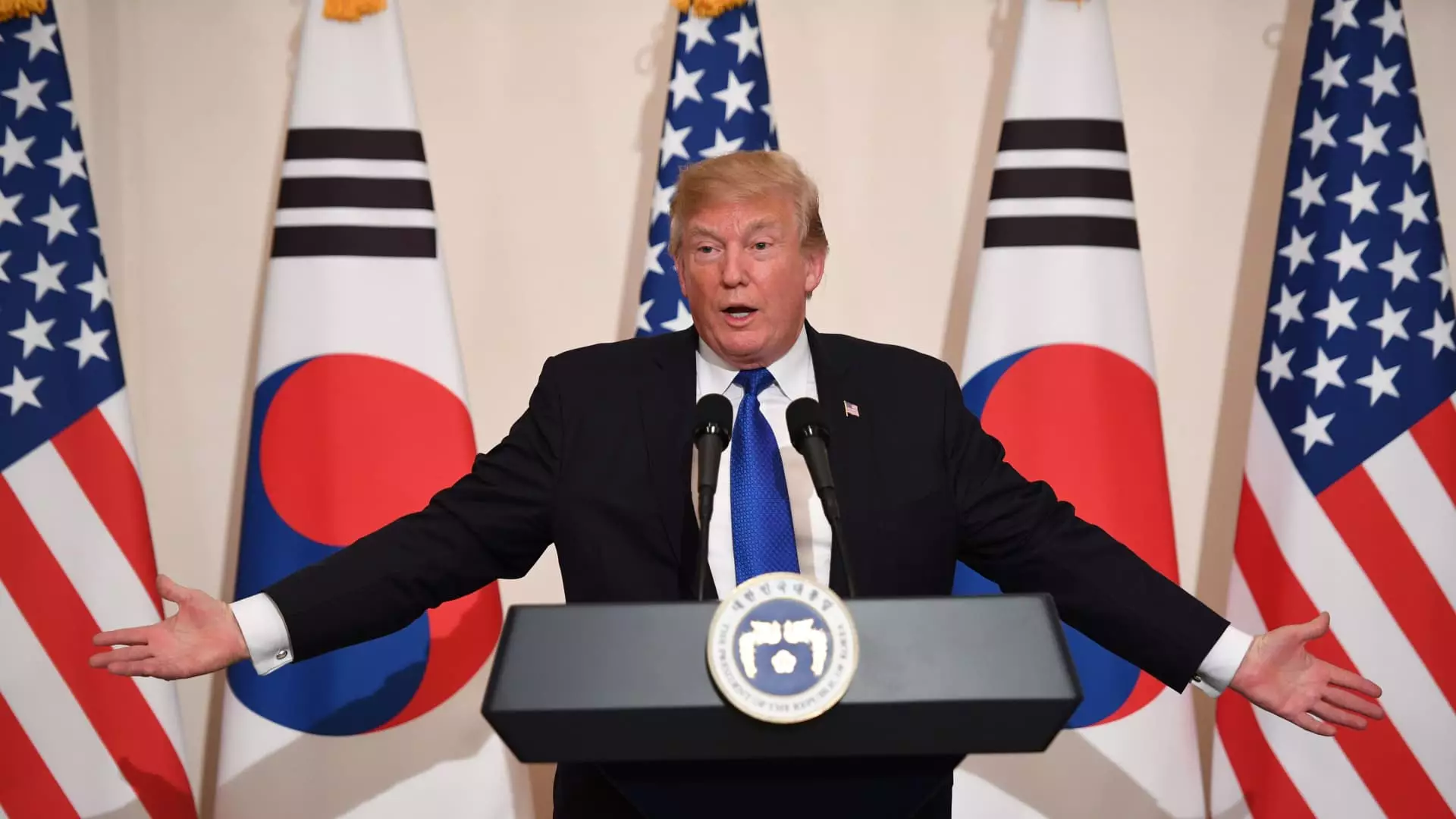The recent announcement by President Trump claiming a “full and complete” trade deal with South Korea warrants deep skepticism. While the rhetoric appearing victorious, a closer inspection reveals that this deal is riddled with concessions, inflated promises, and questionable benefits. In the realm of international trade, labels like “full” or “complete” often mask underlying compromises that favor corporate interests over genuine national progress. The notion that this deal represents a turning point for American workers is not only naive but dangerously disconnected from the reality of the negotiations.
Instead of addressing structural issues—such as the stagnation of manufacturing or the decline of domestic industries—this deal appears to be more about window dressing. The reduction of tariffs from 25% to 15% on Korean autos and other exports suggests a superficial improvement, but does not fundamentally alter the imbalance of trade. It’s a tactic aimed at appeasing patriotic sentiments while benefiting multinational corporations and investors who stand to gain disproportionately. The assertion that 90% of the $350 billion investment will benefit the American people is optimistic at best, as empirical evidence shows that such claims often overstate actual economic gains and underestimate distributional consequences.
The Illusion of Mutual Benefit and Strategic Sacrifices
U.S. trade negotiators often cloak economic deals with rhetoric of mutual benefit, but the underlying motives expose a different story. South Korea’s willingness to invest heavily—particularly in sectors like shipbuilding, semiconductors, and energy—does provide opportunities. Yet, the real concern is whether these investments translate into sustainable, well-paying jobs for Americans or primarily serve corporate profits and geopolitical interests. The proposed $150 billion for shipbuilding cooperation, for instance, appears more like a strategic move to reinforce South Korea’s defense and industrial prowess than a balanced partnership.
Furthermore, the claim that Seoul will purchase $100 billion worth of energy products from the U.S. raises questions about the environmental and geopolitical sustainability of such arrangements. Are these energy deals pushing for renewable sources or prolonging fossil fuel dependency? The focus seems skewed toward short-term economic gains rather than long-term strategic and environmental stability. The diplomatic language—asserting that Seoul will pursue diplomacy rooted in national interests—belies the uneven power dynamics intrinsic to these agreements, where the U.S. often ensures favorable terms at the expense of its allies’ sovereignty.
The Mirage of Economic Patriotism
Trump’s narrative of “protecting” American interests through aggressive tariffs and investment claims dismisses the complexities of a globalized economy. Imposing a 15% tariff on South Korean goods, especially autos and energy, offers a veneer of protectionism but ultimately risks undermining the free trade principles that have historically benefited innovation and consumer choice. Moreover, the claim that tariffs on U.S. goods will be abolished in this deal is likely to be either an overstatement or a strategic misrepresentation meant to placate domestic constituencies.
This entire narrative is steeped in illusions: promises of massive investments, job creation, and balanced benefits. The truth is that such deals tend to favor big corporations and the financial sector, often at the expense of workers and local industries. By framing these negotiations as a triumph of diplomacy and mutual growth, policymakers sideline the nuanced realities faced by everyday Americans—job insecurity, wage stagnation, and economic inequality. The real risk is that these agreements serve as a facade that shields policymakers from accountability, perpetuating a cycle where national interests are sacrificed at the altar of corporate profits.
The Unmet Expectations and Future Risks
As South Korea commits to significant investments and energy purchases, the long-term consequences remain uncertain. Will this ignite a genuine industrial renaissance for the American middle class, or will it become another chapter of superficial gains that ultimately widen economic disparities? History suggests that such deals often lead to short-lived optimism—initial spikes in investment and trade flows—only to give way to disillusionment as the realities of market inequalities and corporate dominance reassert themselves.
The strategic implications of this deal extend beyond economics. The apparent alignment between the U.S. and South Korea is a diplomatic gesture, but it does little to address the core issues of global economic fairness. It’s an alliance built on shaky promises, where the real winners are the multinational corporations that can leverage these arrangements for maximum profit. For ordinary Americans, the hope that this would lead to a more equitable economy is misplaced; instead, it risks entrenching existing inequalities while presenting a facade of progress.
In sum, this trade deal exemplifies the dangerous charm of political rhetoric—promising prosperity and mutual benefit, yet delivering a carefully curated version of reality that leaves many behind. It underscores the pressing need for a more honest, worker-centered approach to trade policy—one that values sustainability, fairness, and genuine national interest over short-term corporate gains.


Leave a Reply